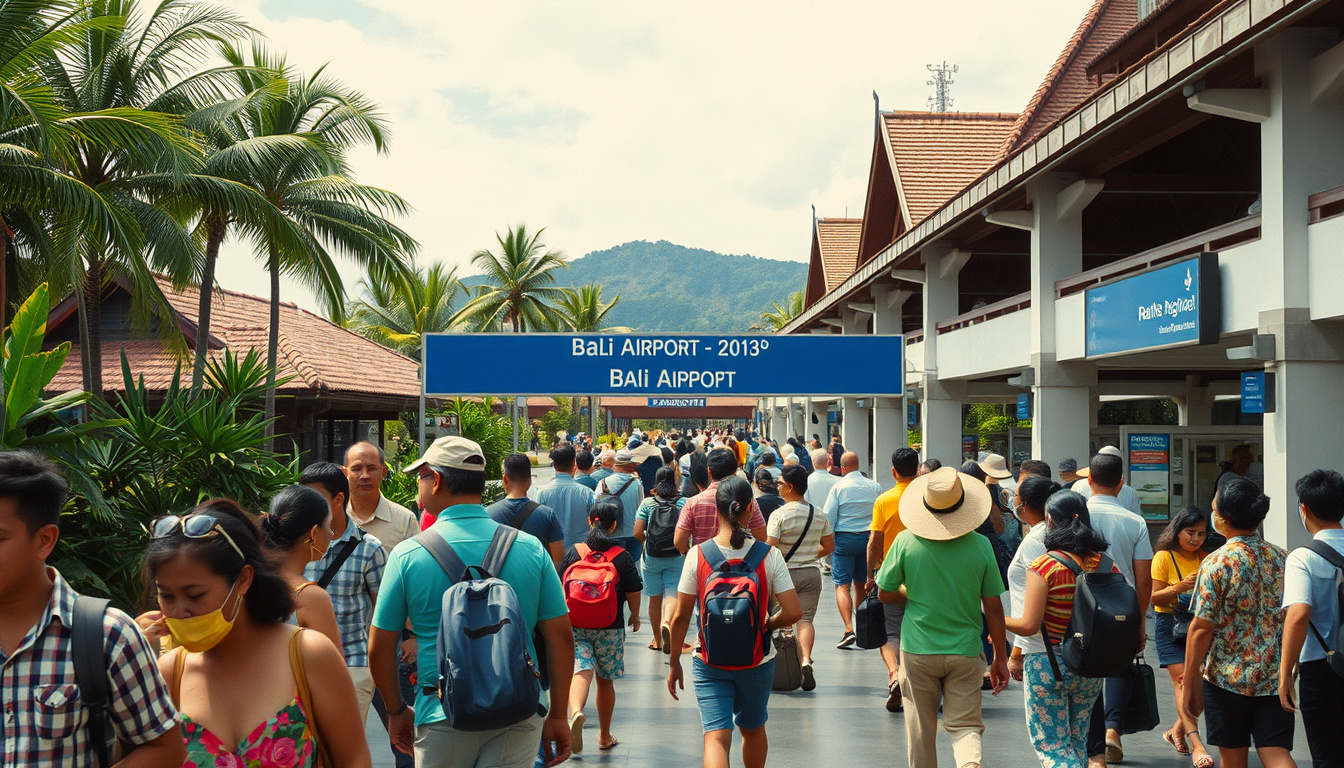Bali Introduces New Foreigner Application to Regulate Tourism
Bali, Indonesia – April 4, 2025 – In a bid to address the growing challenges of illegal accommodations and misbehavior among foreign tourists, Indonesian authorities in Bali have announced the launch of a new mandatory reporting system for accommodation providers. The initiative, named the Foreigner Supervision Application (APOA), aims to enhance the management of tourism by requiring businesses to report the presence of foreign guests to local immigration authorities.
Enhancing Regulation in Tourism
The APOA represents a significant step towards regulating the influx of tourists on the Indonesian island, which is celebrated for its stunning beaches, vibrant cultural scene, and sacred temples. As one of Southeast Asia’s most popular destinations, Bali has faced increasing issues related to unregistered accommodations and instances of tourists failing to adhere to local laws and customs. This new system is part of broader efforts by Bali’s local government to preserve the island’s cultural integrity and ensure that tourism remains a beneficial affair for the local community.
Accommodation providers encompassing various lodgings—including hotels, villas, and guesthouses—must comply with the new reporting requirements. By keeping track of foreign guests, the government aims to better oversee the tourism landscape and tackle illegal practices that compromise the safety and authenticity of the local experience.
The Economic and Cultural Importance of Bali
Bali’s tourism industry is not only vital to Indonesia but also plays a crucial role in the broader Southeast Asian economy. In 2024, Bali welcomed 6.3 million international tourists, surpassing pre-pandemic levels and marking a robust recovery in the region’s travel sector. The expectation for 2025 is to reach 6.5 million tourists, highlighting the importance of effective management of visitor numbers.
As a cultural epicenter, Bali is distinguished by its unique blend of traditional artistry, spirituality, and natural beauty, which continuously attracts travelers seeking both relaxation and cultural engagement. However, the surge in tourism has introduced significant challenges regarding the preservation of the island’s cultural and environmental identity.
Addressing Misbehavior and Illegal Accommodations
The rise in incidents of foreign tourists behaving inappropriately or disregarding local norms has raised alarms among local residents and authorities alike. The introduction of the APOA is a direct response to these ongoing concerns. The reporting requirements are designed not only to mitigate instances of illegal accommodations but also to foster an environment where tourists are encouraged to respect Bali’s laws and customs.
With this application in place, the government will be better positioned to monitor tourist behavior and respond promptly to violations, creating a safer atmosphere for both visitors and residents.
Implications for the Travel Industry
The implementation of the Foreigner Supervision Application carries significant implications for accommodation providers and the tourism industry at large. Notably, it aims to create:
-
Increased Security and Transparency: Tourists can expect a heightened sense of safety, knowing that their accommodations are legally compliant and regulated. This transparency is likely to promote trust between guests and service providers.
-
Encouragement of Legal Compliance: By focusing on unregistered operations, Bali sets a standard for other high-traffic tourist locations to ensure all providers adhere to local regulations, potentially inspiring similar measures in other parts of Southeast Asia.
-
Improvement in Tourist Conduct: As visitors will be monitored more closely, there is hope for improved compliance with local customs and laws, enhancing Bali’s reputation as a cultural destination.
-
Elevated Service Standards: Accommodation providers may be motivated to upgrade their facilities and services to comply with the new regulations, contributing to a better overall experience for tourists.
Consequences for Non-Compliance
Accommodation providers must adapt to the new rules or face significant legal and financial penalties. Failure to report foreign guests could lead to fines up to IDR 25 million (approx. US$1,495) or even imprisonment for serious offenses. While the immediate impact on businesses that previously operated outside legal frameworks may be disruptive, the overarching intent is to fortify the integrity of Bali’s tourism sector and ensure its sustainability.
Looking Ahead
As Bali embarks on this new regulatory journey, global travelers might find themselves navigating a different landscape when booking their stays. Many may opt for officially registered accommodations to stay compliant with the new system. While some could explore alternative destinations with less stringent regulations, the overarching goal is to enhance the tourism experience by promoting responsible behavior and securing cultural preservation.
While challenges loomed on the horizon—particularly for those in the informal sector—the long-term advantages of the Foreigner Supervision Application could greatly benefit both Bali’s tourism industry and its residents. Ultimately, this initiative is a proactive approach designed to adapt to the realities of global travel while safeguarding the enchanting allure of Bali as a must-visit destination for years to come.










Add a comment